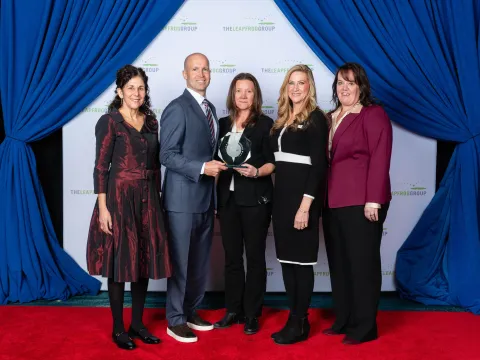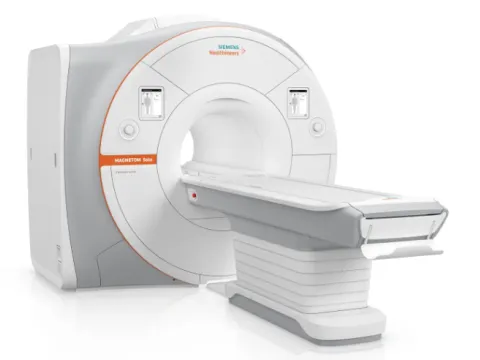- AdventHealth Foundation Central Florida
Type 1 diabetes (T1D) is a complex condition that affects individuals in various ways. For those newly diagnosed, understanding the facts about T1D is crucial for effective management. With a wealth of information available, it can be challenging to discern accurate information from common misconceptions. Let's debunk some of the most prevalent myths about T1D and explore the science behind the facts.
Myth 1: No Family History, No Diabetes
While a family history of diabetes can increase the risk of developing both T1D and Type 2 diabetes, it's not a prerequisite. Many individuals with T1D have no immediate family members with the condition.
Myth 2: T1D and T2D Are Essentially the Same
Although T1D and Type 2 diabetes share similarities, they differ in causes, effects, and treatment. T1D is an autoimmune disease where the body mistakenly attacks the insulin-producing cells in the pancreas. In contrast, Type 2 diabetes is a metabolic disorder characterized by insulin resistance.
Myth 3: Kids Outgrow T1D
T1D is a lifelong condition that can affect people of all ages. There's no known cure, and it requires ongoing management.
Myth 4: Sugar Intake Causes T1D
The exact causes of T1D remain unclear. However, it's not linked to dietary habits. T1D is an autoimmune disease in which the immune system mistakenly attacks the body's own cells.
Myth 5: Insulin Cures T1D
Insulin is a vital treatment for T1D, but it's not a cure. While it replaces the insulin the body can no longer produce, careful monitoring and adjustments are necessary to manage blood sugar levels effectively.
Myth 6: Technology Does All the Work
While advancements in insulin pumps and continuous glucose monitors (CGMs) have significantly improved diabetes management, they don't eliminate the need for active involvement. Individuals with T1D still need to monitor their blood sugar levels, calculate insulin doses, and make lifestyle adjustments.
Myth 7: T1D Management Is Simple
Managing T1D involves more than just insulin injections. It requires frequent blood sugar monitoring, careful meal planning, regular exercise, and ongoing adjustments to insulin doses based on various factors.
Myth 8: Diet and Exercise Can Reverse T1D
While a healthy diet and regular exercise are essential for overall well-being and can help manage T1D, they cannot reverse the condition. Insulin therapy remains a fundamental part of T1D management.
Myth 9: Lifestyle Choices Cause T1D in Children
T1D is not caused by unhealthy lifestyle choices or being overweight. It's an autoimmune disease with complex origins involving genetic and environmental factors.
Myth 10: T1D Only Affects Children
While T1D can be diagnosed at any age, it was historically known as "juvenile diabetes." However, a significant number of adults are also diagnosed with T1D.
The Bottom Line
Accurate information about T1D is crucial for effective management. While technology and research continue to advance, there's no current cure for T1D. A collaborative approach involving healthcare professionals, individuals with T1D, and their families is essential to optimize care and improve quality of life.
Recent News

AdventHealth Avista Recognized as a Top Teaching Hospital in Colorado for Patient Safety and Quality Care
For patients and families, feeling safe, heard, and well cared for is foundational to healing. That commitment to whole-person care is why AdventHealth Avista has been recognized as one of Colorado’s...

Phoebe Carpenter, APRN-CNP, joins AdventHealth Medical Group Family Medicine, Internal Medicine & Pediatrics at Curtis Parkway
AdventHealth is pleased to announce that Phoebe Carpenter, APRN-CNP, has joined AdventHealth Medical Group Family Medicine, Internal Medicine & Pediatrics at Curtis Parkway.

Pilot survives heart attack thanks to Flight 1 and whole-person connected care
From ER to air to cath lab, a seamless system delivered lifesaving treatment in under 90 minutes.

Pulmonologist joins AdventHealth Waterman
From nutrition and ICU to advanced bronchoscopy, Dr. Alba Rivera-Díaz brings bilingual, whole-person lung care to Lake County.

AdventHealth Avista opens food pantry to support community health
AdventHealth Avista has taken a significant step toward addressing food insecurity, a key priority identified in its Community Health Needs Assessment by opening a food pantry on its first floor. This...

AdventHealth Porter Earns COPPER Designation, Strengthening Pediatric Emergency Care
AdventHealth Porter is proud to announce that its Emergency Department has earned the Pediatric Advanced COPPER designation, a significant milestone that reflects a deep commitment to providing safe...

Three AdventHealth hospitals in Florida’s Volusia and Flagler counties earn top Leapfrog honors
Residents of Volusia and Flagler counties now have national confirmation of something many rely on every day: safe, high-quality hospital care close to home.

AdventHealth DeLand investing in next-generation MRI technology to enhance patient care
AdventHealth DeLand will soon install a new MRI system designed to deliver faster exams, sharper images and a more comfortable experience for patients in West Volusia.

AdventHealth Wauchula earns 2025 Leapfrog Top Rural Hospital Award for outstanding quality and safety
People in Hardee County can feel confident knowing their local hospital is among the safest in the nation with AdventHealth Wauchula being named a Top Rural Hospital by The Leapfrog Group for its...

Innovative new procedure offers hope for heart transplant candidates at high risk for rejection
Innovation at AdventHealth is driven by one purpose: helping people heal in body, mind and spirit.

NC Supreme Court clears way for first phase of AdventHealth’s new hospital in Weaverville
AdventHealth is grateful for community support as NC Supreme Court decision clears the way for a new hospital.

The hidden cancer one clinician caught – and the process improvements she says matter most
Shana Vongkhankeo, APRN, discovered an unusual thyroid enlargement during a routine physical for a teenage patient, leading to a life-saving cancer diagnosis that highlighted how being fully present...
